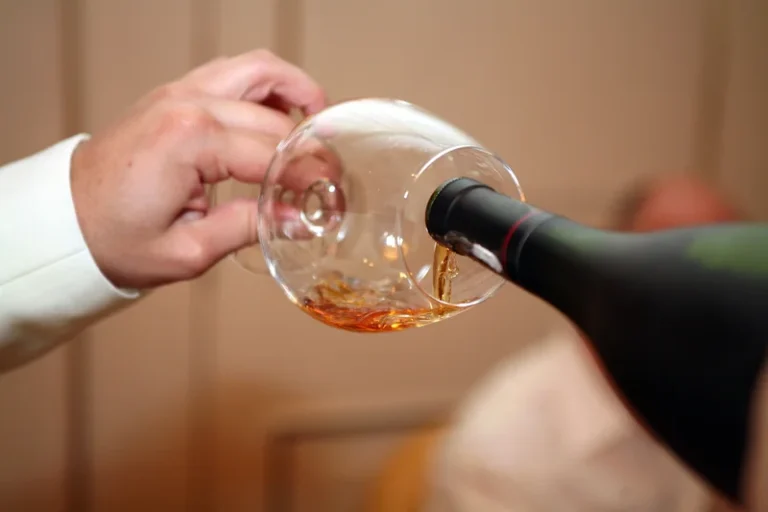Sober living
About Cannabis Policy APIS

Currently, domestically cultivated hemp is only federally lawful when cultivated under such a pilot program. As of this writing, 41 states have passed legislation to allow them to take advantage of hemp pilot programs under the 2014 Farm Bill.23 Many of these programs authorize commercial sales and marketing of resulting hemp-derived CBD products by private actors licensed to do so. Historically, hemp has been bred as an industrial crop to produce fabrics, rope, and other textiles from its long stalks.13 Technically speaking, and despite not being explicitly mentioned in the CSA, hemp is a controlled substance unless an exemption applies. CDC released a Health Alert Network (HAN) Health Advisory in 2021 to inform consumers that CBD can be synthetically converted into Delta-8 THC, which is psychoactive and not well understood. This alert warns consumers about the potential for adverse events due to insufficient labeling of products containing THC and CBD.
- Official websites use .govA .gov website belongs to an official government organization in the United States.
- The presence of THC, whether introduced through the use of marijuana or through an inaccurately labeled CBD product, can cause a positive drug test result.
- It is important to note that there are research questions for which RWD research projects are unlikely to substitute for certain types of traditional studies.
- Under this process, the FDA initially conducts a full assessment of the substance’s abuse potential, called an “eight-factor analysis” (8FA), because there are eight statutory factors that bear on abuse potential.
- Therefore, the more than 100 (Brenneisen, 2007) cannabinoids found in the cannabis plant are also classified in Schedule I by operation of definition, and not as a result of a scientific analysis of their abuse potential.
The evidence for cannabidiol health benefits
FDA will assess these data and, shortly before or after the product is approved, FDA will make a rescheduling recommendation to DEA. Under the recent Improving Regulatory Transparency in New Medical Therapies Act, 21 USC section 811(j), DEA has 90 days within which to evaluate all data and make a rescheduling decision, which is published in the Federal Register in the form of an interim final rule (IFR). FDA has issued a guidance to assist sponsors in developing botanically complex prescription medications (US Dep’t of Health and Human Services and US FDA, 2016). While this guidance allows is cannabidiol addictive some flexibility in the early stages of research, by the time the product reaches Phase 3, the requirements are essentially the same as for any product composed of a single synthetic molecule. If the product is composed solely of a purified cannabinoid, it is subject to all such requirements. In addition, in 2015 and 2016, FDA tested many of the CBD products and determined that more than 90% of them contained much less CBD than the labeled amount, some had no CBD at all, and some had greater amounts of THC (US FDA, Warning Letters and Test Results for Cannabidiol-Related Products).
About Cannabis Policy

Despite its rapidly growing popularity and use, the regulatory status of CBD in the United States is convoluted. From a regulatory standpoint, the difference between cannabis and hemp is the chemical composition, specifically as it relates to the concentration of delta-9 tetrahydrocannabinol (THC), the primary intoxicating compound found in Cannabis. Although limitations on THC concentrations for hemp differ internationally, the THC concentration in the United States cannot exceed 3/10ths of 1% (0.3%). Hemp-derived and cannabis-derived CBD each has its own unique regulatory status and consequent legal implications.

Challenges in current capabilities for collecting data regarding the use and safety of CBD
Even if a CBD product meets the definition of “hemp” under the 2018 Farm Bill (see Question #2), it still must comply with all other applicable laws, including the FD&C Act. The below questions and answers explain some of the ways that specific parts of the FD&C Act can affect the legality of CBD products. Initial evidence from animal and human studies (i.e. a controlled study in the New England Journal of Medicine and other reported individual cases) shows that its use could have some therapeutic value for seizures due to epilepsy and related conditions. It has been widely reported that WHO officially recommended on December 14, 2017 that cannabis compound cannabidiol (CBD) not be internationally scheduled as a controlled substance.
The Issue for Federal Employees

Those factors include, among other things, agency resources and the threat to the public health. FDA also may consult with its federal and state partners in making decisions about whether to initiate a federal enforcement action. Numerous other legal requirements apply to dietary supplement products, including requirements relating to Current Good Manufacturing Practices (CGMPs) and labeling. Information about these requirements, and about FDA requirements across all product areas, can be found on FDA’s website. When a substance is excluded from the dietary supplement definition under section 201(ff)(3)(B) of the FD&C Act, the exclusion applies unless FDA, in the agency’s discretion, has issued a regulation, after notice and comment, finding that the article would be lawful under the FD&C Act. The FDA will continue to facilitate the work of companies interested in appropriately bringing safe, effective, and quality products to market, including scientifically-based research concerning the medicinal uses of cannabis.
Regulatory Status of Cannabidiol in the United States: A Perspective
Additional information concerning research on the medical use of cannabis is available from the National Institutes of Health, particularly the National Cancer Institute (NCI) and National Institute on Drug Abuse (NIDA). In order for hemp-seed oil to be exempt from the Cannabis Act, it can’t contain more than 10 parts per million of THC. The Cannabis Act and its regulations do not distinguish between CBD derived from industrial hemp and CBD derived from cannabis with greater than 0.3% THC.
- Since hemp is a “phytoremediator,” i.e., it absorbs heavy metals from the soil (Cascardi, 2018), it is essential that the conditions of cultivation be carefully controlled.
- CBD is present in most marijuana products, often along with its sister compound THC.
- Dravet syndrome is a rare genetic condition that appears during the first year of life with frequent fever-related seizures (febrile seizures).
- CBD is not intoxicating and may reduce some of the effects of tetrahydracannabinol (THC); however, it does have an effect on the brain.
FeatureIs cannabidiol a scheduled controlled substance? Origin makes the difference
Cannabidiol (CBD) Potential Harm, Side Effects, and Unknowns
- [1, 2, 3] Based on published animal research, there are also concerns that use of cannabis during pregnancy may negatively impact fetal brain development.
- This includes CBD derived from industrial hemp plants, as well as CBD derived from other varieties of cannabis.
- Media reports on cannabis often include the contention that, since it is a Schedule I substance, cannabis (and its derivatives) cannot be researched in the United States, much less move successfully through the rigors of the FDA approval process.
- This interaction is particularly important if you are taking a blood thinner, an anti-epileptic, or an immunosuppressant medication, all of which need to have stable levels in your blood.
FDA News Releases and Statements

